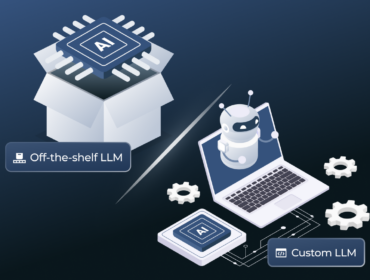Our expert Yurii Krivoborodov has commented on the latest news that Swift is exploring the possibilities of experimenting with tokenized assets.
On December 21, 2021, SWIFT Announces Plans to Enter the Tokenized Asset Market
This news had no significant reaction from market participants. But it will have a vast and long-term impact on the entire fintech industry. Let’s examine the effect on the global economy.
SWIFT (Society for Worldwide Interbank Financial Telecommunications) is the global provider of interbank transactions that links more than 11,000 institutions in 200 countries. Consequently, it is one of the largest financial institutions that could potentially be affected by blockchain technology. With this decision, SWIFT wants to make a breakthrough and lead the digital revolution and the massive adoption of crypto assets.
Now SWIFT acts mainly as a gateway for cross-border interbank money transfers. The rising amounts of cryptocurrency payments steal customers from SWIFT with faster and cheaper international payment options. But with the current customer base, SWIFT is exceptionally positioned to take significant market share in the future digital economy.
Following the trend of world central banks issuing CBDCs (Central Bank Digital Currencies), SWIFT is preparing the infrastructure for the new technology. But what is more interesting is that the same infrastructure is applicable not only for digital currencies but for almost any type of digital assets.
The World Economic Forum estimates that up to 10% of global GDP will be stored and transacted via DLT by 2027 – tokenized markets could potentially be worth as much as US$24 trillion by 2027. This includes not only tokenized securities like stocks and bonds but also real estate, sustainable assets, arts, commodities, and physical assets.
According to SWIFT’s website, tokenized and traditional assets will co-exist in the upcoming decade, posing potential challenges. Various technologies, platforms, and regulatory environments will create a thicket of connections for securities market participants. This could result in inefficiencies and fragmentation, as well as rising costs and risks across the industry.
SWIT operates as a neutral global cooperative focused on ensuring interoperability and setting standards for the industry. It can connect market participants and simplify transactions by performing centralized activities that would otherwise be performed bilaterally between institutions.
If SWIFT succeeds with the tokenization of a wide variety of asset classes, it could make the company one of the most influential players in the global digital economy involving its massive institutional customer base in a crypto market that will grow its total market capitalization from 10 to 100 times current levels.






![SWIFT Enters the Tokenized Asset Market What’s the EU Artificial Intelligence Act and How to Comply? [Webinar]](https://unicsoft.com/wp-content/uploads/2024/03/Cover_1140_v1.1-370x280.png)

